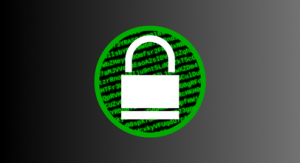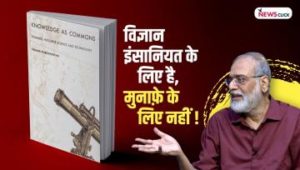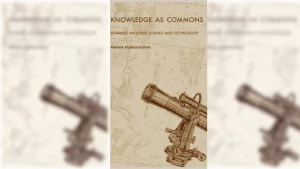 Until Thursday April 27, 2017, endorsements were sought for the open letter to stop acceptance of Encrypted Media Extension as a W3C standard, which will now be conveyed to Sir Tim Berners-Lee and the W3C.
Until Thursday April 27, 2017, endorsements were sought for the open letter to stop acceptance of Encrypted Media Extension as a W3C standard, which will now be conveyed to Sir Tim Berners-Lee and the W3C.
The following endorsements have been receied:
Organizational endorsements
- Agencia Latinoamericana de Información – ALAI, Ecuador
- ALTERNATIVA ECONÓMICA Crítica y Réplica, Colombia
- ASSA8 Aasociacion de solidaridad Salvador Allende, Spain
- Association for promotion of sustainable development, India
- Bangladesh NGOs Network for Radio & Communication, Bangladesh
- BloggerPrise Contenidos, Uruguay
- CEH Arturo Jauretche, Argentina
- Centre for e-Parliament Research, Bangladesh
- Centro de Estudios Humanistas de Córdoba, Argentina
- Co.lab, Brazil
- Connecting.nyc Inc., USA
- Coordinadora Latinoamericana de Organizaciones del Campo (CLOC), Latin America
- Craol Community Radio Network, Ireland
- Diverse Voices and Action (DIVA) for Equality, Fiji
- El Nuevo Cronista, Argentina
- EMPOWER INDIA, India
- Instituto de Desarrollo de la Economia Asociayiva, Rep. Dominicana
- IT for Change, India
- Pontydysgu Ltd, UK
- Post-Media Lab, Germany/World
- Stichting bibliotheken Midden Fryslân, Netherlands
- Programa de Educación para la Paz-PROEPAZ, Peru
- Pressenza, Ecuador
- Radialistas Apasionadas y Apasionados, Ecuador
- Radios Libres, Ecuador
Individual endorsements
- Abraham Pavon Salazar, teacher, Honduras
- Adela Delgado Pop, Guatemala
- Alan MacLennan, lecturer, Scotland
- Aleksandr Zykov, Russia
- Alex Llumiquinga, Ecuador
- Alexandre José da Rocha Moreira, Brazil
- Alexandros Triantafyllidis, software engineer, Greece
- Alexis Pacheco R., Honduras
- Alicia Aparicio, Argentina
- Alicia Madrid, Canada
- Ana Cristhina Lemes, São Paulo
- Ana Paula Santos Pereira Sequeiros, researcher, Centre for Social Studies, University of Coimbra, Portugal
- Andrea Cochetti, Argentina
- Andro Ortiz Dieguez, Union de informaticos de Cuba, Cuba
- Andrés Fernando Cortez, usuario, El Salvador
- Andrés Herrera, SysAdm, Spain
- Andrés Pino, Chile
- Angela Elvira Fuentes Agüero, profesora universitaria, Cuba
- Anne Kaun, Associate Professor in Media and Communication Studies, Sweden
- Antonio Argemiro Burgos, Colombia
- Antonio Hernández Pérez, consultant, Spain
- Antonio J. González Plessmann, Surgentes. Colectivo de DDHH, Venezuela
- Ariana López, Red en Defensa de la Humanidad-Cuba, Cuba
- Armand Mattelart, Université Paris-VIII, France
- Armando Torras, electronic engineer, Cuba
- Arturo Menéndez Cabezas, MD, PhD, Professor, University of Medical Sciences, Camaguey, Cuba
- Arumugam Sankar, EMPOWER INDIA, India
- Bernardo García, editor, Colombia
- Bogdan Trifunovic, digital projects librarian, Serbia
- Boris Klompus, USA
- Camille Lee, MLIS Candidate, Canada
- Carlos Andres Martin, docente, Argentina
- Carlos Morales Iglesias, scientific researcher, Spain
- Chandra Singh Kulung, Nepal
- Chris Bissell, ICT scholar, UK
- Christian Grueny, philosopher, Germany
- Christoph B. Graber, Professor of Law, Chair for Legal Sociology and Media Law, University of Zurich, Switzerland
- Cristobal Gonzalez Ramirez, Colombia
- Dan Maitland, human rights activist, Canada
- Dare Samuel Adeleke, Polytechnic Digital Library, The Federal Polytechnic, Ado-Ekiti, Nigeria
- David Chapman, Senior Lecturer, The Open University, UK
- David Peter Kelly, Switzerland
- Deborah Withers, UK
- Diane Mercier, courtière en connaissances, Canada
- Dianne Oberg, Professor Emerita, University of Alberta, Canada
- Dick Kaser, Editor, Computers in Libraries Magazine, USA
- Diego Nicolas Alderete, user, Argentina
- Dr Maureen Ellis, Senior Research Associate at UCL-IoE London University and Associate Lecturer at Open University, UK
- Dr Syed Mustafa Ali, Lecturer, The Open University, UK
- Dr. Kai Droege, Institute for Social Research, Frankfurt, Germany; and University for Applied Science, Lucerne, Switzerland
- Dr. Peter Waterman, Institute of Social Studies, The Hague (retired), Netherlands
- Dr. Steve Walker, Senior Lecturer, The Open University, UK
- Eber Fernando Ordoñez, Argentina
- Edmundo Murrugarra Florián, Perú
- Eduardo Alejandro Méndez Azguí, researcher (law and history), Cuba
- Emil Balcazar Lara, apoyo a la solicitud de mantener una Web democratica y equitativa
- Emily Martinez, artist, US
- Evelyn Rottengatter, Germany
- Feliciano Castaño Villar, University of Granada, Spain
- Felipe Lòpez, Argentina
- Florence Owor, higher education librarian, UK
- Florian Sprenger, Junior Professor for Media and Cultural Studies, Goethe-University Frankfurt, Germany
- Francisco Gabriel Rodriguez Torres, Argentina
- Francisco Olivares, journalist, Chile
- Francois Soulard, World Forum of Free Media, Argentina
- Fred Flagg, university Scholarly Communications worker, UK
- Fulgencio Rueda, Venezuela
- Gabriel Jesus Montalba Hernandez, dirigente social, Chile
- Gisela Lopez, US
- Gonzalo Fernando Mondaca Gutiérrez, ingeniero ambiental, Bolivia
- Harry Halpin, security researcher, France/USA
- Homero Saltalamacchia, UNTREF, Argentina
- Horacio Furlan, Argentina
- Hugh Govan, Fiji
- Ignácio Dotto Neto, Universidade Federal do Paraná, Brazil
- Iroel Sánchez Espinosa, blogger and informatic engineer, Cuba
- Isabel Ducca Durán, Costa Rica
- Isel Llerena del Castillo, Red en Defensa de la Humanidad-Cuba, Cuba
- Jaider Camilo Perez Salamanca, sociólogo, Colombia
- Jan Beilicke, free and open source advocate, Germany
- Javier Obregón, Argentina
- Jean-Louis Fulsack, President CESIR (NGO), France
- Jennifer Holt, University of California, Santa Barbara, USA
- Jesus Angel Pirela Cedeño, ESA Consultores, Venezuela
- Jesús González Sarabia, México
- Joao Paulo Cardielos, University of Coimbra, Portugal
- John Whalley, Librarian, UK
- Jorge Merlo, Ecuador
- Jose Castro Pozo, Escritor – Poet – Past Pdte. ANEA Lima, Peru
- Jose Manuel Arizaga Álvarez, economista, España
- Josep Vicenç Marín Oliva, Spain
- José Enrique Poma Loja, servidor público, Ecuador
- José Miguel Angel Verdecchia, docente/investigador social, Paraguay
- José Rafael Luque, Abogado, Venezuela
- José Rosario Marroquín Farrera, Universidad Iberoamericana, Puebla, México
- José Vicente Rodríguez Muñoz, professor, Spain
- Joyce Kirk, emeritus professor, Australia
- João Humberto Morgado Figueiredo Silva, Centro de Estudos Sociais da Universidade de Coimbra, Portugal
- Juan José Bellido, librarian, Perú
- Juan Paco, Internet user, Peru
- Julio González Esteves, logistico, Argentina
- Julio Macias, university professor, Cuba
- Karolina Andersdotter, librarian and digital rights activist, Sweden
- Kate Perris, UK
- Kath Osborn, librarian and repository manager, UK
- Keith Sanborn, Bard College, The New School, USA
- Lieke Ploeger, community builder SPEKTRUM, Germany
- Ligia Noemí Aguilar Salazar, profesora jubilada, México
- Lincoln James Dahlberg, University of Queensland, Australia
- Lisa McFarlane, Internet user, UK
- Lisa Nathan, Assistant Professor, iSchool, University of British Columbia, Canada
- Lucas Eliseo Bolatti, Argentina
- Lucy Astra Matheson, librarian, UK
- Luis Alberto Mendieta, writer, Ecuador
- Luis Fernando Siles Zúñiga, Costa Rica
- Luis Horacio Acosta, Argentina
- Luis Mora Castillo, Apoyo pleno a Carta21463, Nicaragua
- Manuel Bello, librarian, México
- Manuel Fernández, México
- Marc GUILLAUME, France
- Marcello Lussana, Phd student, Germany
- Marcelo Zabalaga, Central Bank of Bolivia, Past President, Bolivia
- Marcelo da Luz Batalha, sociologist and PhD researcher at State University of Campinas (Unicamp), Brazil
- Marco Berlinguer, IGOP UAB, Spain
- Marcos González Bahamonde, España
- Maria I Tamargo, Interamerican University of Puerto Rico, Puerto Rico
- Maria Jose P. F. Carvalho, Biblioteca Norte|Sul, Portugal
- Maria Manuel Borges, University of Coimbra, Portugal
- Maria Matamala, Chile
- Marianne Posner, director, libraries department, Tel-Aviv – Yafo Municipality, Israel
- Mariano Solis Leyva, México
- Marina Vishmidt, writer, UK
- Marita Erna Simon, Austria
- Martha Attridge Bufton, university subject specialist, Canada
- Matthew Hanchard, UK
- Mauro O. González, writer, Cuba
- Melissa Hofmann, librarian, educator, and protector of fair use, USA
- Michael Powell, author, UK
- Michel Menou, retired university professor of information science, France
- Miguel Eugenio Toro Buenaventura, Colombia
- Miguel Ángel Cadena Hernández, politólogo, Colombia
- Milagros Valdeavellano Roca Rey, Religiosa del Sagrado Corazón-educadora, Peru
- Milton Rene Soto Santiesteban, Ambassador of Bolivia in Sweden
- Minka Stoyanova, artist/academic, USA
- Molly Hankwitz, PhD, writer/editor, USA
- Mélodie Fenez, Germany
- Namita Aavriti, writer, India
- Nathasha Alvarez, academic librarian, USA
- Neil longley, web user, UK
- Nelsy Julieta Lizarazo Castro, Ecuador
- Nicolas Cruz Tineo, Rep. Dominicana
- Nora Schmidt, Lund University, Schweden
- Osvaldo Kreimer, Universidad Nacional de San Martin, Argentina
- Otelo Martinez, progresista, Cuba
- Pablo Quevedo Mejía, contador público/servidor público, Venezuela
- Paolo Monella, University of Palermo, Italy
- Patricia Serafini, librarian, University of Toronto, Canada
- Patricia Vieira, University of Coimbra, Portugal
- Pedro Cagigal, academic, Ecuador
- Pedro Castillo, Educador, Panamá
- Pedro Guillermo Remón Ares, Venezuela
- Prof Peter J Lor, University of Pretoria, South Africa
- Rafael Pla-Lopez, retired professor of the Universitat de Valencia, Spain
- Rajmohan Oruganti, India
- Rashidah Begum, librarian, Malaysia
- Rebeca Cuevas, docente universitaria, México
- Renée Castro-Pozo, profesora – editora, Canada
- Robert Bentancur, Uruguay
- Roberto Savio, Other News, Italia
- Rosa García, internauta, México
- Rosa Sadler, UK
- Rubens Ribeiro Gonçalves da Silva, Full Professor – Information Science Institute – Federal University of Bahia, Brasil
- Rumi Graham, librarian, Canada
- Samantha Kaplan, UNC Chapel Hill, USA
- Samir Hachani, Algiers’ University 2, Algeria
- Sean Burns, assistant professor, US
- Shalini Bhutani, legal researcher, India
- Silvia Eggli, web user, Switzerland
- Tapas Ray, social science researcher, formerly engineer and journalist, India
- Thomas Daniel Wilson, Editor-in-Chief, Information Research
- Usha Rodrigues, academic, Deakin University, Australia
- Vallo Kelder, teacher and librarian, Estonia
- Veronica Leon Burch, filmmaker, Ecuador
- Victor Bravo, investigador, Argentina
- Victor Selabe, Botswana
- Virginia Kuhn, Associate Professor, School of Cinematic Arts, University of Southern California, USA
- Walker Vizcarra Gaibor, fotógrafo – educador, Ecuador
- Xan Goodman, librarian, USA
- Yves La Neuville, Canada
Background information – Open letter against DRM control of web browsers
We all use the Internet and the world wide web, and celebrate it for how it has equalized the information playing field. It has allowed unmediated p2p communication, and placed all content on an equal footing. Those who invented the Internet and the Web gifted it to the world so as to promote the public good. The key bodies establishing Internet standards such as the Internet Engineering Task Force and the World Wide Web Consortium (W3C), were similarly concerned to safeguard the Internet’s core values of equality and openness. But as the Internet has evolved it has become as well, a key means for those with economic power to dominate and exploit. The various bodies now developing Internet standards are today dominated by trans-national digital corporations. Not surprising then that the new Internet/ Web standards increasingly respond to the needs of these corporations rather than of the public at large.
Inspired by demands from the big content providers, the traditional movie and broadcasting companies, corporations like Apple, Google, Microsoft and Netflix, have come together to use the W3C to develop a new web standard which allows them to gain ever more power over the cultural and economic life of humanity.
At the heart of this is the EME, a technical specification which has been developed at the World Wide Web Consortium and is now close to publication an official Recommendation of the W3C. The purpose of EME is to allow for the implementation of Digital Rights (Restrictions) Management (DRM) systems through which publishers will control what end users can do with the content they receive through the Internet.
The effect of the W3C’s support of DRM is a new form of digital colonialism where a black box of computer code installed in all browsers globally will enforce U.S. Copyright laws such as the Digital Millennium Copyright Act without user consent or respect for local laws. Unlike earlier web standards this undermines fundamental principles of social justice and equality of access to information as well as fundamental principles of computer security.
In response to this the Just Net Coalition has sent an open letter urging the W3C, and in particular the inventor of the WWW, Sir Tim Berners-Lee (who has veto powers at the W3C), to reject the EME.
Louis Pouzin, an inventor of key elements of the original Internet, put it thus: “Of course lobbies have financial and political means to ignore or distort standards in their products, but they want more. They need the guarantee of a reputable standard institution or outstanding individuals to boost the legalization of their marketing strategy.”
The Web is at a crossroad, and your voice is valuable to stop its enclosure. We are looking for support and endorsements for this letter, which will be conveyed to Sir Tim Berners-Lee and the W3C on April 28, 2017.



